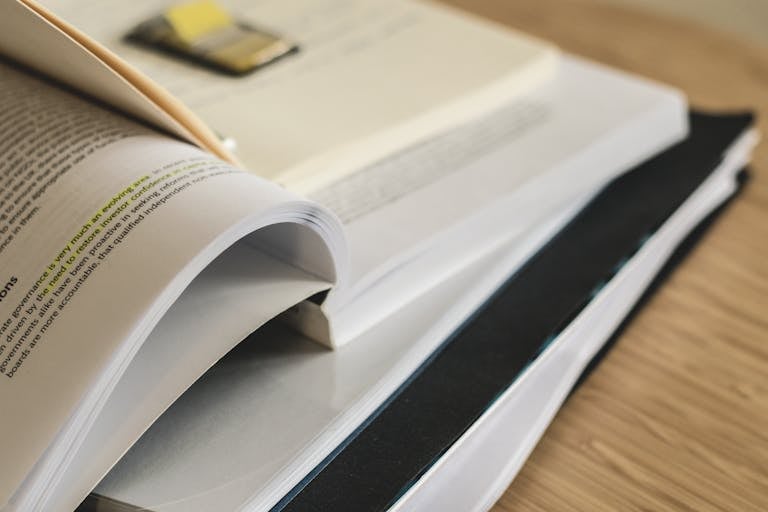How Much is a Lawyer Consultation Fee?
When you’re facing a legal hiccup, oftentimes you will want to lawyer up. That said, one of the first questions that might pop into your mind is, “How much is this all going to cost me?”
As someone who’s navigated the complex world of legal services, I understand the anxiety that comes with unknown expenses. Let’s dive into the world of lawyer consultation fees and demystify this often-confusing topic.
Lawyer Consultation Fees: By the Numbers
Before we get into the details, let’s look at some eye-opening statistics:
| Type of Consultation | Average Fee Range |
| Free Consultation | $0 |
| Flat Fee Consultation | $100 – $500 |
| Hourly Rate Consultation | $100 – $400 per hour |
| Percentage of lawyers offering free consultations | Approximately 70% |
These numbers give us a general idea, but let’s break it down further.
Types of Lawyer Consultation Fees
1. Free Consultations
Yes, you read that right! Many lawyers offer free initial consultations.
Pros:
- No upfront cost
- Opportunity to assess the lawyer’s expertise and demeanor
Cons:
- May be shorter in duration (15-30 minutes)
- Might not involve in-depth legal advice
“Free consultations allow clients to ‘shop around’ and find the right fit. It’s a win-win for both parties.” – Sarah Johnson, Personal Injury Attorney
2. Flat Fee Consultations
Some lawyers charge a fixed amount for an initial consultation.
Pros:
- Clear, upfront cost
- Often involves a more comprehensive review of your case
Cons:
- You pay regardless of whether you decide to hire the lawyer
3. Hourly Rate Consultations
This is when a lawyer charges their regular hourly rate for the consultation time.
Pros:
- You get the lawyer’s full attention and expertise
- Often involves detailed legal advice
Cons:
- Can be expensive, especially for complex issues
Factors Affecting Consultation Fees
Understanding what influences a lawyer’s consultation fee can help you navigate the process more effectively. Let’s dive deeper into each factor:
- Type of Law:
- Specialized areas often command higher fees due to the expertise required.
- For example, intellectual property lawyers might charge $300-$600+ per hour, while a general practice attorney might charge $100-$300 per hour.
- Complex areas like international law, securities law, or high-stakes corporate law typically have higher consultation fees.
- Lawyer’s Experience:
- More experienced attorneys generally charge higher rates.
- A lawyer with 20+ years of experience might charge 2-3 times more than a lawyer with 2-5 years of experience.
- However, experienced paralegals or junior associates might handle initial consultations at lower rates in some firms.
- Location:
- Lawyers in major metropolitan areas typically charge more due to higher overhead costs.
- For instance, a lawyer in New York City or San Francisco might charge 30-50% more than a lawyer in a smaller city for the same type of consultation.
- Even within cities, lawyers in downtown financial districts often charge more than those in suburban areas.
- Complexity of Your Case:
- If your issue requires extensive research or review of documents, the consultation might be costlier.
- Cases involving multiple jurisdictions, international elements, or novel legal questions typically require more time and expertise, leading to higher fees.
- Some lawyers might offer a tiered consultation fee based on the complexity of your case.
- Duration of Consultation:
- Longer consultations naturally cost more.
- Some lawyers offer different consultation packages, e.g., 30 minutes, 60 minutes, or 90 minutes, with corresponding fee structures.
- Firm Size and Structure:
- Large, prestigious firms often charge higher consultation fees than smaller firms or solo practitioners.
- Some large firms might not offer consultations at all for certain practice areas, instead requiring a retainer upfront.
- Market Demand:
- In areas with high demand for legal services but a limited number of specialists, consultation fees might be higher.
- Conversely, in saturated markets, some lawyers might offer more competitive consultation fees to attract clients.
- Time of Year:
- Some practice areas have “busy seasons.” For example, tax lawyers might charge higher consultation fees closer to tax deadlines.
- Lawyer’s Reputation and Success Rate:
- Highly renowned lawyers or those with exceptional track records might charge premium rates for consultations.
- Potential Value of the Case:
- For certain types of cases (like personal injury), lawyers might offer free consultations if they see potential for a valuable case.
“Understanding these factors can help clients contextualize consultation fees. It’s not just about the dollar amount, but the value and expertise you’re getting in return.” – Lisa Patel, Legal Fee Consultant
Real-Life Scenario: My Consultation Experience
When I needed a lawyer for a business contract dispute, I was surprised by the range of consultation options. Here’s what I encountered:
- Lawyer A: Offered a free 30-minute consultation
- Lawyer B: Charged a flat fee of $250 for a one-hour consultation
- Lawyer C: Charged their hourly rate of $300 for the consultation
I chose Lawyer B, feeling it offered a good balance of time and value. The consultation was thorough, and I left with a clear understanding of my legal options.
A well-prepared client makes for a productive consultation. It’s a collaborative process.” – Michael Chen, Corporate Law Specialist
How to Make the Most of Your Consultation
A legal consultation is your opportunity to gain valuable insights and determine if a lawyer is the right fit for your needs. Here’s an expanded guide on maximizing this time:
- Prepare Your Questions:
- Write down your questions beforehand, prioritizing the most important ones.
- Group questions by topic to ensure a logical flow of conversation.
- Include questions about the lawyer’s experience with similar cases and their success rate.
- Gather Relevant Documents:
- Organize all paperwork related to your case chronologically.
- Create a summary sheet with key dates, names, and events.
- If possible, send these documents to the lawyer before the consultation so they can review them in advance.
- Be Honest and Thorough:
- Disclose all relevant facts, even if they seem unfavorable to your case.
- Remember that attorney-client privilege protects your communications.
- If you’re unsure if something is relevant, mention it anyway – let the lawyer decide its importance.
- Take Notes:
- Bring a notepad or device to record key points.
- If it’s a virtual consultation, ask if you can record the session (always get permission first).
- Write down any legal terms or concepts you don’t understand to research later.
- Ask About Next Steps and Costs:
- Get a clear idea of what hiring the lawyer would entail.
- Ask for a written estimate of total costs, including fees, court costs, and other expenses.
- Inquire about payment plans or alternative fee arrangements if cost is a concern.
- Clarify Communication Expectations:
- Ask how often you can expect updates on your case.
- Determine the best method of communication (email, phone, in-person meetings).
- Inquire about response times for urgent matters.
- Discuss Timeline and Potential Outcomes:
- Ask for an estimated timeline of how your case might progress.
- Discuss potential outcomes, both favorable and unfavorable.
- Understand any statute of limitations or critical deadlines that might affect your case.
- Evaluate the Lawyer’s Demeanor:
- Pay attention to how well the lawyer listens and communicates.
- Assess whether you feel comfortable with their approach and personality.
- Trust your instincts – a good rapport is crucial for a successful attorney-client relationship.
- Ask About Alternative Dispute Resolution:
- Inquire if alternatives to litigation (like mediation or arbitration) might be appropriate for your case.
- Request References or Case Studies:
- Ask if the lawyer can provide references from past clients with similar cases.
- Inquire about any notable or relevant case studies that demonstrate their expertise.
- Clarify Next Steps:
- Before ending the consultation, ensure you understand what happens next.
- Ask about any immediate actions you should take.
- Determine when and how you’ll be notified if the lawyer decides to take your case (or not).
“A well-prepared client not only gets more value from the consultation but also helps the lawyer provide more accurate and tailored advice. It’s a collaborative effort that sets the tone for the entire legal process.” – Robert Tanaka, Litigation Specialist
By thoroughly preparing for your consultation and actively engaging during the meeting, you’ll be better equipped to make an informed decision about your legal representation and the path forward for your case.
Frequently Asked Questions
Q: Are consultation fees tax-deductible? A: In some cases, yes. Consultation fees for business or investment-related legal advice are often deductible. Consult a tax professional for specifics.
Q: What if I can’t afford a consultation fee? A: Many areas have legal aid societies or pro bono services for those who can’t afford legal fees. Bar associations can often provide referrals to these services.
Q: Is a more expensive consultation always better? A: Not necessarily. The quality of the consultation depends more on the lawyer’s expertise and your preparation than on the fee.
Q: Can I negotiate the consultation fee? A: It’s possible, especially if you’re dealing with a solo practitioner or small firm. However, many lawyers have set fees for consultations.
Q: What should I do if I feel the consultation wasn’t worth the fee? A: Express your concerns to the lawyer. Most reputable attorneys will want to ensure you feel you received value for your money.
Conclusion: Investing in Your Legal Future
Remember, a consultation fee is an investment in understanding your legal situation and options. While it’s natural to be cost-conscious, focusing solely on finding the cheapest consultation might not serve you well in the long run.
If you’re unsure where to start or want to compare options easily, consider using a service like LegalShield. They offer access to a network of attorneys with clear fee structures, making it easier to find the right lawyer for your needs. Learn more about how LegalShield can help you navigate legal consultations here.
Ultimately, the right consultation can save you time, money, and stress by pointing you in the right direction from the start. Don’t be afraid to shop around and ask questions about fees upfront. Your future self will thank you for doing the legwork now to find the right legal guidance.







